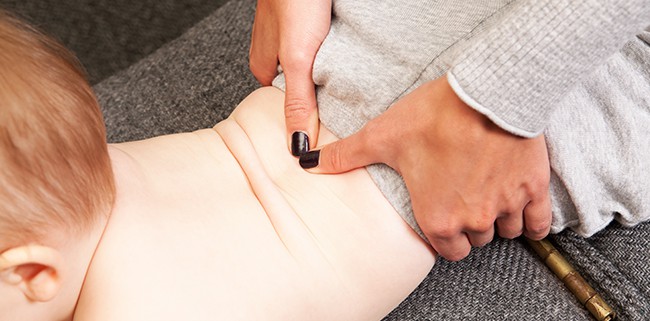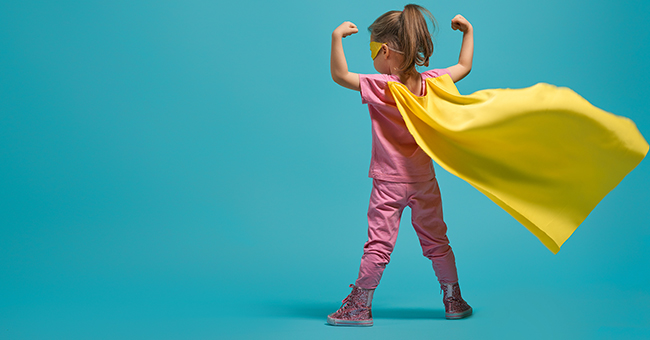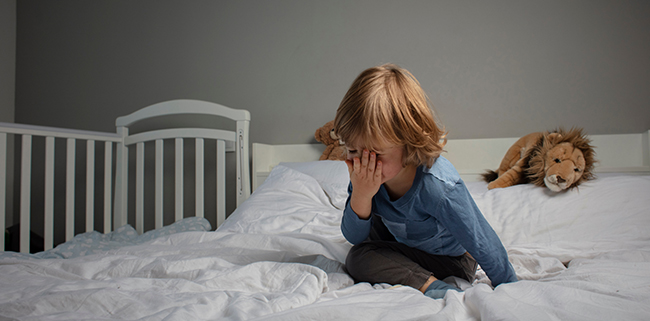Did you know that thousands of children occasionally wake up to a wet bed? Is your child one of them? Bed-wetting (or nocturnal enuresis) can be a humiliating problem, affecting approximately 25% of children.1 In this issue we will be discussing why chiropractic care may help some children with this problem.
Bed-wetting, also known as ‘nocturnal enuresis’ is defined as the involuntary loss of urine at night, in the absence of disease, at an age when a child could be expected to be dry.2
Why try Chiropractic?
Many research studies have shown that chiropractic care helps the brain become more accurately aware of what is going on inside your body and the world around you. Because some children with bed-wetting respond well to chiropractic care3 researchers think that chiropractic care helps the brain become more aware that the bladder is full.4
Chiropractic care reduced the frequency of bed-wetting in some kids by up to 50%.
Is it safe for kids?
Over recent years the safety of chiropractic care for children and infants has been investigated by many researchers.5-7 The results of their studies suggest that chiropractic care can be safely provided to even the youngest members of our society. Adverse events in children after chiropractic care are rare and usually don’t require further care.5

We know that gently adjusting the spine changes the way the brain perceives what’s going on in the body.8 Improving spinal function may help the brain and central nervous system to ‘notice’ that the bladder is full and wake the child at night.
Unfortunately, not a lot of research has been done yet in this area but there are many individual cases published in the scientific literature suggesting that chiropractic care may help at least some children with their bed-wetting.
In 1994, a group of researchers performed a clinical trial including 46 children who frequently wet the bed at night.3 In this study the researchers found that after 10 weeks the children receiving chiropractic care had on average almost two more dry nights over a two-week period. The kids who did NOT receive any chiropractic care had no change in the number of nights they wet the bed. Enuresis affects up to 25% of children!1
Nocturnal enuresis (bed-wetting) affects up to 25% of children!
When the researchers took a closer look at the results they found that one in four of the children who received chiropractic care actually had a 50% or more reduction in wet nights over the course of the trial. None of the control group had this type of improvement. This suggests that chiropractic care may well help at least some children with their bed-wetting.
Research published in 2009 on the role of chiropractors in caring for children and infants found that only three out of 5500 children visiting chiropractic offices reported adverse effects which were described as muscle or spine stiffness or soreness.7 All cases were self- limiting and the patients continued under care. Parents also reported a host of improvements in their children’s pain levels, mood and immune function. A review published in 2011 suggested that about one in every 100 or 200 children who see a chiropractor will experience mild adverse effects, defined as self-limiting irritability or soreness lasting less than one day.7 More serious adverse effects usually tended to be correlated to significant pre-existing conditions. The clinical bottom line from these studies is that modern paediatric chiropractic care is safe.

What causes bed-wetting?
The causes of enuresis are generally unknown.1 9 10 Some theories suggest that some kids are very deep sleepers, so they are unaware that their bladder is full.9 It appears that the child’s brain isn’t receiving ‘loud’ enough messages saying that the child needs to wake up and go to the toilet. Other causes are thought to be emotional stress or a medical condition such as bladder infection.10 Conventional management of enuresis includes behavioural therapy, alarm therapy and drug therapy.
There is a lack of evidence to support most of these approaches.2 Remember that the chiropractor isn’t directly trying to treat the bed-wetting. Instead, they’re trying to improve spinal function to improve your child’s brain’s ability to process what’s going on in their body. And for some kids, this seems to result in more dry nights and improved bladder control!
References
- Robson N Engl. 2009;360(14):1429-1436.
- Glazener et al. Cochrane Database Syst Rev. 2005(2):CD005230.
- Reed et al. J Manipulative Physiol Ther. Nov-Dec 1994;17(9):596-600.
- Luscombe et al. J Pediatr Matern & Fam Health – Chiropr. 2014;2014(3):55-59.
- Alcantara et al. Explore (NY). 2009;5(5):290-295.
- Todd et al. J Manipulative Physiol Ther.
- Doyle et al. Clinical Chiropractic. 2011;14(3):97-105.
- Haavik et al. 2012. Journal of Electromyography and Kinesiology, 22(5), 768–776.
- Wen et al. Eur Urol. 2006;49(6):1107-1113.
- Robson. N Engl J Med. 2009;360(14):1429-1436.
Acknowledgments
- Dr. Heidi Haavik – BSc(Physiol) BSc(Chiro) PhD
- Dr. Kelly Holt – BSc, BSc(Chiro), PGDipHSc, PhD
- Dr. Jenna Duehr – BChiro, BHSC (Nursing), MHSc

